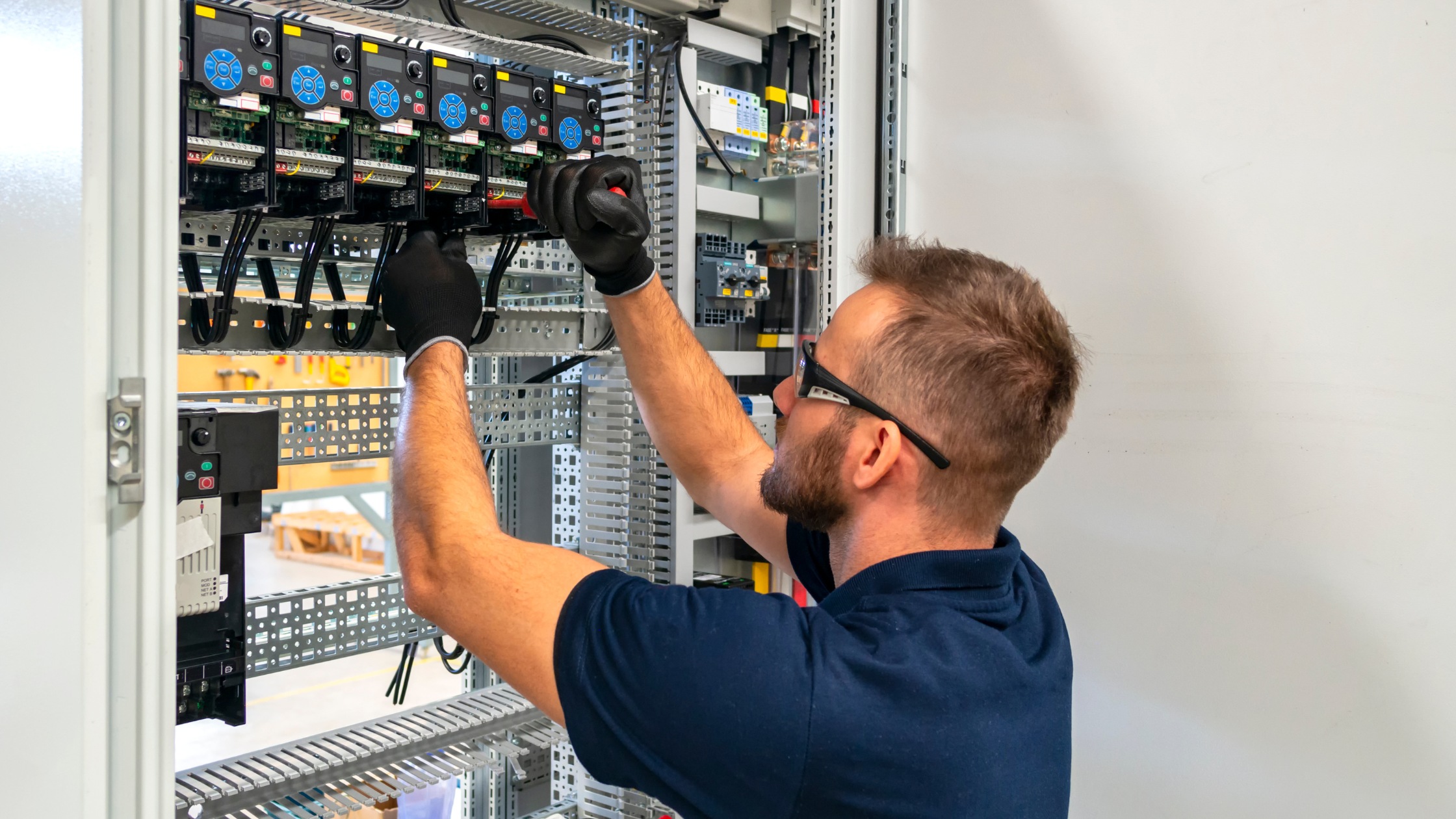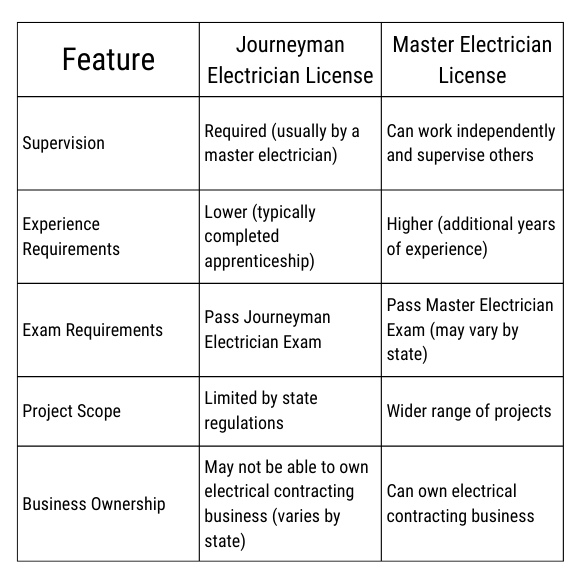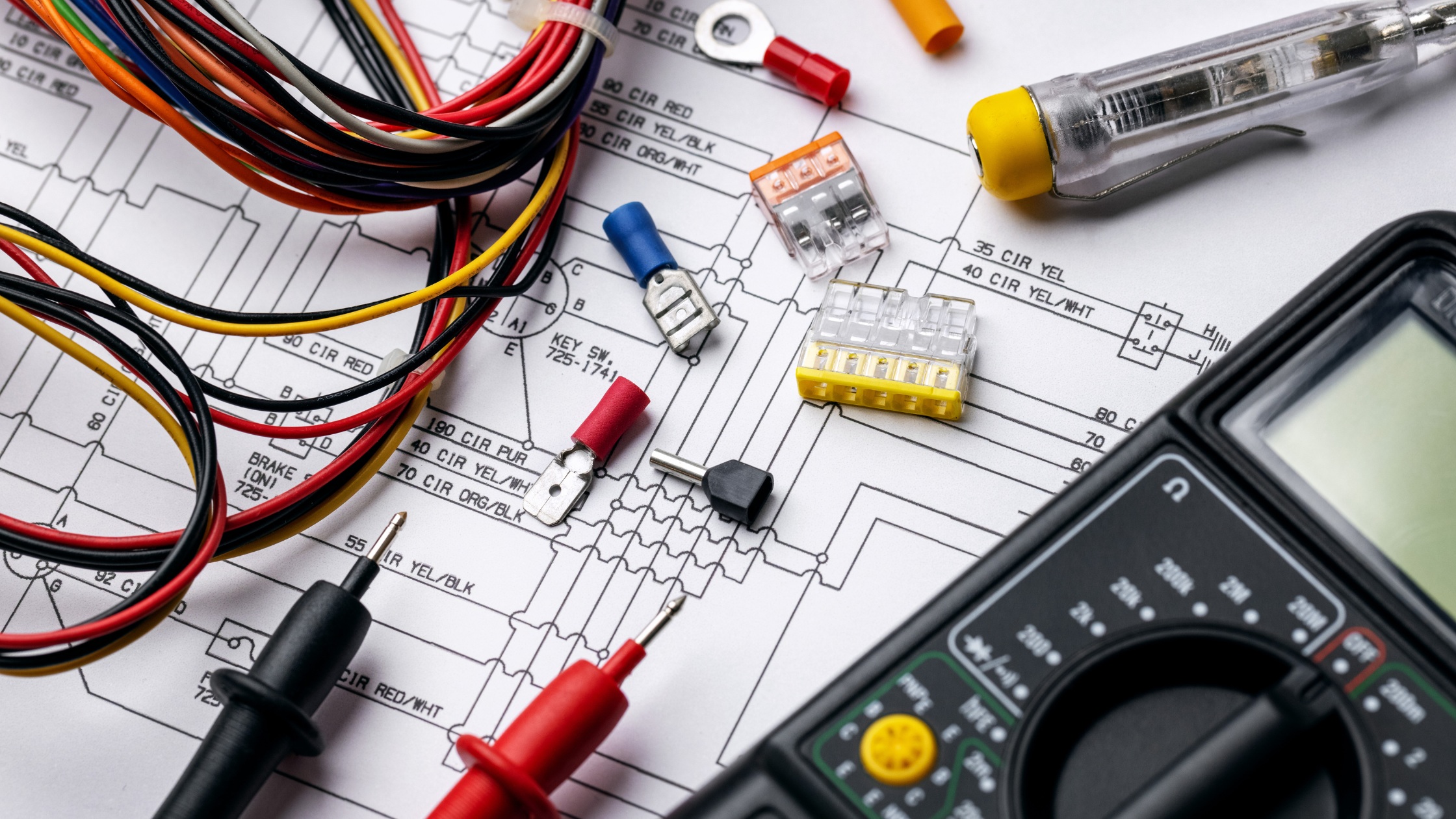How to become an Electrician - Your Step by Step Guide

Are you interested in becoming an electrician but not sure how to start? Maybe you’re wondering about the steps to succeed in this field. This guide has everything you need to know about starting a career as an electrician. We’ll cover everything from the training you’ll need to job opportunities and potential earnings. Let’s get started and explore the world of electrician careers together.
In today’s world, the demand for professional technicians like electricians is on the rise. Electricians play a very important role in the smooth functioning of our daily gadgets, and electronic equipment required in our modern life. Without electricians, many aspects of our daily lives, including lighting, heating, cooling, communication, and entertainment, would be significantly disrupted. Therefore, electricians are indispensable in supporting the functionality and convenience of modern society.
In day-to-day life, electricians are in demand for several reasons:
Residential Electrical Services
Commercial and Business Needs
Healthcare Facilities
Education Institutions
Industrial Areas
Now to become an electrician these are the basic steps to follow.
1. High School Diploma or GED:
This is your foundation. Math (algebra), science (physics), and even English will come in handy as an electrician. Don’t forget shop class if it’s offered – those skills are a plus.
2. Trade School (Optional Boost):
Consider going to a vocational, technical, or trade school. These programs teach you the electrical ropes and can give you an edge when getting certified and finding a job.
3. Land an Apprenticeship (This is Key):
This is where real learning happens. Apprenticeships combine working with a licensed electrician with classroom learning. Look for them through trade schools, electrical contractor associations, or JATC programs (they’re in many areas).
- Lake County JATC (Illinois): This program offers apprenticeships in Inside Wireman and Telecommunications, both registered with the Department of Labor. You can find more information on their website: https://www.lakecountyjatc.org/howtoapply.htm
- Tucson Electrical JATC (Arizona): This program focuses on training Inside Wireman electricians. They follow the National Joint Apprenticeship and Training Committee (NJATC) curriculum and can be contacted through their website: https://www.tucsonjatc.org/
- National Joint Apprenticeship and Training Committee (NJATC) – National Website: While not a specific program location, the NJATC national website provides resources and information on JATC programs across the USA. You can use their “Find a Local JATC” tool to search for programs in your desired area: https://www.electricaltrainingalliance.org/
Remember, these are just a few examples. Many other JATC programs exist throughout the United States
- Apprenticeship: Hands-On Journey (4 Years):
Apprenticeships typically take about 4 years. You’ll learn by doing, attend classes, and get guidance from experienced electricians. Some states even allow credits from trade or community college programs to count toward your apprenticeship hours.
- Get Licensed (The Final Step!):
After completing your apprenticeship and meeting your state’s training requirements, you’ll be ready to take the electrician licensing exam. This exam tests your knowledge of the National Electric Code and other vital skills to be a safe and qualified electrician.

The next step is to apply for Journeyman Electrician Exam
The Journeyman Electrician Exam is a crucial step for anyone wanting to work as a licensed electrician in most areas of the United States. It’s essentially a test of your knowledge and skills to ensure you can perform electrical work safely and according to regulations.
Here’s a breakdown of the Journeyman Electrician Exam:
Purpose: It verifies that you possess the necessary understanding of electrical codes, safety practices, and electrical theory to work independently as a journeyman electrician.
Who Takes It: Electricians who have completed an apprenticeship program and met their state’s experience requirements typically take this exam.
Content: The exam usually covers various electrical topics like:
National Electrical Code (NEC) – This is the established standard for safe electrical practices in the U.S.
Electrical calculations and theory
Wiring methods and materials
Electrical equipment and devices
Troubleshooting electrical systems
Safe work practices
Format: The exam is often multiple-choice and true-or-false, with some variations depending on the state. It typically takes around 4 hours to complete.
Passing Score: The passing score can vary slightly by state, but it usually falls around 70-75%.
After Passing the Exam:
Once you pass the Journeyman Electrician Exam, you’ll be eligible to apply for a state electrician license. This license allows you to work independently, take on bigger projects, and potentially earn a higher salary.
How to Become an HVAC Technician
What is the difference between Journeyman Electrician License And Master Electrician License
Journeyman Electrician License: This is the most common electrician license and allows you to work independently under the supervision of a master electrician or within specific limitations set by your state.
Master Electrician License: This is a more advanced license that requires additional experience and often passing a separate exam. A master electrician can supervise other electricians, take on a wider range of projects, and sometimes even start their own electrical contracting business.

So, while a state electrician license allows you to work as an electrician within your state limits, a master’s license shows that you are capable of handling a higher range of projects which requires higher greater expertise and experience.
What is a State Electrician License?
Electrician License: Your Ticket to Work Safely
Think of a state electrician license as a permission slip from your state government, saying you’re qualified to work with electricity. It shows everyone you’ve got the knowledge, skills, and experience to handle electrical tasks safely and by the rules.
Who Needs This License?
If you want to be your own boss as an electrician or tackle bigger electrical projects, you’ll likely need this license. Every state has its own rules, but generally, you’ll need it to work independently.
How to Get It:
To get your license, you’ll usually need to:
Become an electrician apprentice: This training program teaches you the ropes.
Pass an electrician exam: This tests your knowledge of electrical codes, safety, and how electricity works.
Meet any other requirements your state has: This might include background checks or fees.
Benefits of Being Licensed:
It’s legal: You can work as an electrician without getting in trouble.
You look good: Employers and clients know you’ve met the state’s standards for safety and skills.
More projects: You can take on a wider variety of electrical jobs.
Bigger paycheck: Licensed electricians usually earn more than those without a license.

How much is an Electrician’s Salary.
Electricians can bring home good money! Here’s the lowdown:
The Middle Ground: In the US, many electricians make around $60,950 a year (that’s the median from May 2022, according to the government). This means half the electricians make more and half make less.
Salary Spread: Electrician pay can change depending on a few things, like your experience, where you live, and the kind of electrical work you do.
Starting Out: You might start around $37,440 a year (common for beginners or areas with lower costs).
Experienced or Specialized: Experienced electricians, master electricians, or those in high-demand fields or expensive cities can earn over $102,300 a year!
The folks at the Bureau of Labor Statistics (BLS) have fresh numbers. Now they predict a 6% growth in electrician jobs between 2022 and 2032. That’s still way better than most other jobs.
Other sources, like MyFuture.com, chime in with a similar prediction of 6% growth for electricians from 2022 to 2032. They even estimate there will be around 73,500 new electrician jobs every year.
Basically, even with slightly different figures, the bottom line is clear: electricians are likely to be in high demand for years to come.
Online Electrician schools in the USA
Thinking about a career as an electrician but want to learn on your schedule? Online electrician programs are a great option! These programs teach you the skills you need to become a licensed electrician, all from the comfort of your home.
What You’ll Learn:
Electricity 101: Understand the basics of electricity, how it behaves, and how to work with it safely (think of it like learning the ABCs of electrical work).
Electrical Rule Book: You’ll learn the important rules that electricians follow to make sure everything is safe and up to code (like a special rule book to keep things safe).
Circuit Champions: Programs teach you how to build, fix, and even design the electrical circuits that power your lights, appliances, and more (like becoming a mini circuit superhero!).
Safety First, Always: Safety is the most important thing for electricians! Online programs will teach you safe work habits to avoid accidents (like learning how to stay safe while working with electricity).
Math Made Easy: Don’t be scared! You’ll only learn the basic math skills needed for electrical work, like figuring out how much electricity things need (like simple addition and subtraction, not fancy math).
How Long Does it Take?
The time it takes to complete an online electrician program depends on the program itself and how much time you can dedicate each week. Programs typically range from a few months to two years.
Go beyond the basics:
While a general electrician license equips you with various tasks, specialization allows you to focus on a specific area and become an expert. This can lead to:
Higher Earning Potential: Specialized electricians often command higher salaries due to their in-demand expertise.
Efficiency and Speed: Focused knowledge translates to faster and more efficient work on specialized projects.
Research the latest trends: The electrical field is constantly evolving. Try to find the areas with high growth potential, like renewable energy or smart building technologies.
Do you enjoy working with intricate data networks or cutting-edge solar systems?
Consult experienced electricians: Network with professionals in different specialties to gain insights into their daily work and career paths.
Specialization: The electrical field specializations in various areas.
Find the areas that interest you, such as:
Low-Voltage Systems: Focus on installing and maintaining data and communication cabling networks.
Building Automation: Gain expertise in smart home systems and building automation controls.
Photovoltaic (PV) Systems: Specialize in the design, installation, and maintenance of solar power systems.
Earning certifications in these areas demonstrates your expertise and increases your value to potential employers.
Stay Sharp, Stay Ahead: Continuing Education for Electricians
The electrical field is characterized by continuous advancements in technology and regular revisions to safety codes (e.g., National Electrical Code). To ensure professional competency and client safety, licensed electricians must prioritize continuing professional development (CPD) activities. This document outlines key areas for CPD that will equip electricians with the necessary knowledge and skills to excel in the ever-evolving electrical industry.
- Become a Troubleshooting Whiz: Electrical problems can be challenging. By taking classes on advanced troubleshooting, you’ll get even better at figuring out what’s wrong and fixing it fast. This means happy clients and less time scratching your head!
- Master the Latest Lighting: Those old-fashioned light bulbs are going out of style. LED lights are taking over, and they use way less energy. Classes on LED systems will teach you how to design, install, and fix these new lighting systems.
- Become an EV Charging Station Pro: Electric cars are becoming more and more popular, and that means there’s a growing need for people who can install charging stations. Take a class and become an expert in this exciting new area of electrical work.
- Become a Guiding Light: Embrace Mentorship. Remember those early days in the trade, the challenges you overcame, and the insights you gained from experienced electricians? By becoming a mentor, you can pay it forward. Imagine the satisfaction of guiding a new electrician, helping them navigate the intricacies of the trade, and fostering their confidence. It’s a chance to give back to the profession you love and contribute to a skilled and thriving electrical community.
- Step Up and Lead the Crew : Do you possess a natural leadership ability, a knack for motivating others, and a clear vision for how projects should run? Consider pursuing leadership roles! You could become a foreman, leading a team of electricians on a large-scale project. This path allows you to leverage your technical expertise while cultivating your leadership skills. Or, for the truly ambitious, starting your own electrical contracting business can be rewarding. This exciting option lets you combine your electrical knowledge with your entrepreneurial spirit to become your own boss and shape a successful company.
By continually improving your skills, sharing your knowledge with others, and potentially taking on a leadership role, you can transform from a skilled electrician into a true leader in the field. This journey opens doors to fulfilling career paths, gives you the opportunity to prove your worth, and grants you the immense satisfaction of being a mentor and a leader in this ever-evolving industry.